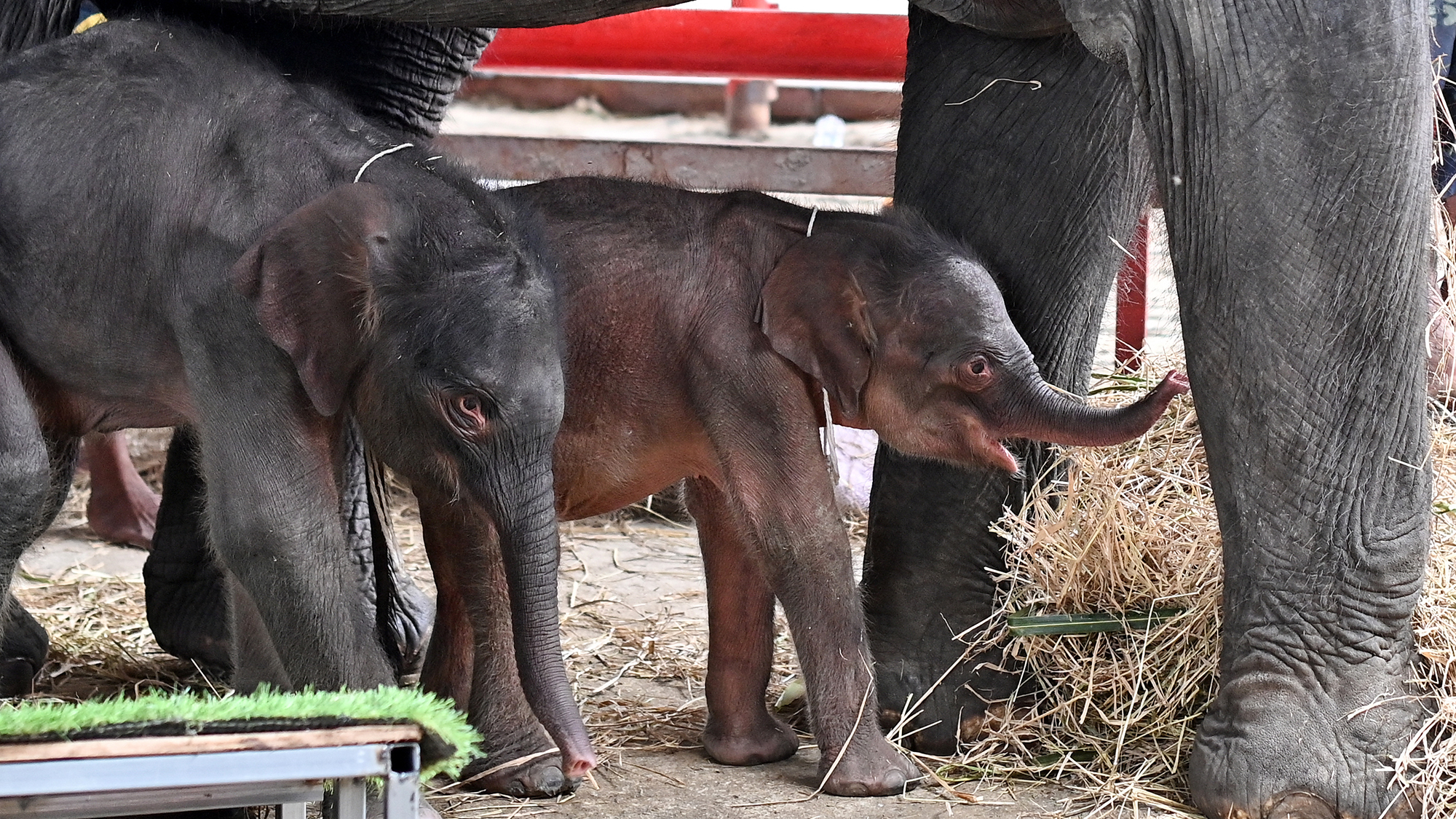

In Thailand, a 36-year-old Asian elephant named Jamjuree gave birth to a rare set of twins. The dramatic birth left one caregiver injured after he tried to rescue the babies at the Ayutthaya Elephant Palace and Royal Kraal on June 7. A 176-pound male baby was born first, followed by a 132-pound female about 18 minutes later. The second baby allegedly surprised Jamjuree and she went into a frenzy and kicked the other baby.
“We heard somebody shout ‘there is another baby being born!'” veterinarian Lardthongtare Meepan told AFP.
The elephant keepers–or mahouts–jumped in to prevent the mother from attacking the newborn. The mahout took a blow to his ankle during the rescue.
“The mother attacked the baby because she had never had twins before–it’s very rare,” Michelle Reedy told AFP. Reedy is the director of the Elephant Stay organization, where visiting tourists can ride, feed, and bathe the elephants at the Royal Kraal center.
“The mahouts who are the caregivers of the elephants jumped in there trying to get the baby away so that she didn’t kill it,” said Reedy.
Jamjuree has now accepted her calves. The babies are so small that the team built a special platform so that they can reach up and suckle. They will also be given supplemental pumped milk by syringe.
[Related: Expressive elephants use gestures and vocal cues to communicate.]
The twins’ father is a 29-year-old elephant named Siam. The pair will be named seven days after their birth, in accordance with Thai custom.
According to Save the Elephants, twins only form about one percent of elephant births and male-female twin births are even more unusual. By comparison, about 17 out of every 1,000 human births are fraternal twins in Africa and North America–the two continents with the highest rate of twinning. Multiple births are incredibly common in the animal kingdom’s smaller animals, but scientists say identical twins are very rare.
Elephant mothers often don’t have enough milk ready for both calves and the pair may not have survived in the wild.
“Whether the rest of the herd may have intervened—they may have, but the baby may have been trampled in the process,” said Reedy.
Many of the 80 elephants at the preserve were rescued from street begging. After a 1989 ban on logging, mahouts who used elephants to log were looking for an alternative income. Many turned to begging on the streets, using the animals to perform tricks. This practice itself was outlawed in 2010.
Some of the elephants at Royal Kraal do carry tourists on their backs to the nearby ruins and temples of Ayutthaya, the former capital of Siam. Numerous conservation groups oppose elephant riding, saying it is stressful for the animals and often involves abusive training.
One 2021 study from Thailand’s Chiang Mai University found that over 50 percent of the animals in Chiang Mai Thai tourist facilities show nervous tics that could reflect frustration, boredom, or anxiety.
The center argues that interactions like these allow the elephants to socialize, exercise, and promote conservation of the species. Asian elephants are endangered in Southeast Asia and China. According to the World Wildlife Fund, only about 8,000 to 11,000 Asian elephants remain in the wild. They were once widespread, but deforestation, human poaching and encroachment have decimated their numbers.
The organization World Animal Protection publishes an online guide to help curious tourists make responsible decisions regarding elephant interactions.
“There is still a certain element of control required for elephants to be in close contact with humans, whether it’s rides or elephant bathing,” Drinya Kenyon from World Animal Protection told Lonely Planet in 2022. Kenyon added that close contact with elephants poses safety risks for tourists. “Even when elephants are under a high level of control, they can still be unpredictable.”
